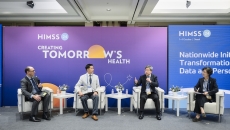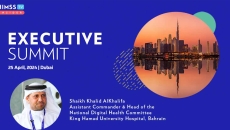Precision Medicine
By partnering with Meharry Medical College, the cloud giant says it aims to enhance community care and wellness in Middle Tennessee with AI and clinical applications, spark health innovation and cultivate workforce skills.
AI & ML Intelligence
Dr. Anmol Kapoor, an expert in precision medicine and artificial intelligence, discusses AI-driven genomic analysis, blockchain in genomics, multi-omic integration, and navigating ethical and regulatory challenges of AI-enabled personalized care.
Going back to the basics by focusing on programme design is crucial, says Dr Mahesh Appannan, director of Digital Health at the Ministry of Health Malaysia.
Privacy-enhancing technologies can help healthcare organizations ensure the safe use of AI-enabled analytics, machine learning and other advanced data applications, say the cofounders of Duality.
HIMSS24 APAC
Health leaders in Taiwan, South Korea, and Singapore share insights in resolving big data exchange and precision medicine hurdles.
The new artificial intelligence enhancements for healthcare promise to unlock conversational data for clinical insights and support app development, reporting, imaging and other use cases while enhancing trustworthiness.
Cancer treatment research can now rely less on Western datasets.
Shaikh Khalid AlKhalifa, assistant commander of Bahrain's King Hamad University Hospital, talks about how the country is working with Harvard to build a genome bank that will eventually enable treatments based on patients' genetics.
The pioneering operation is done over a distance of 5,700 miles.
By year's end, staff expect to see a reduction in time spent on manual tasks and a reduction in duplicative research data generation leading to an overall reduction in ongoing operational costs.









